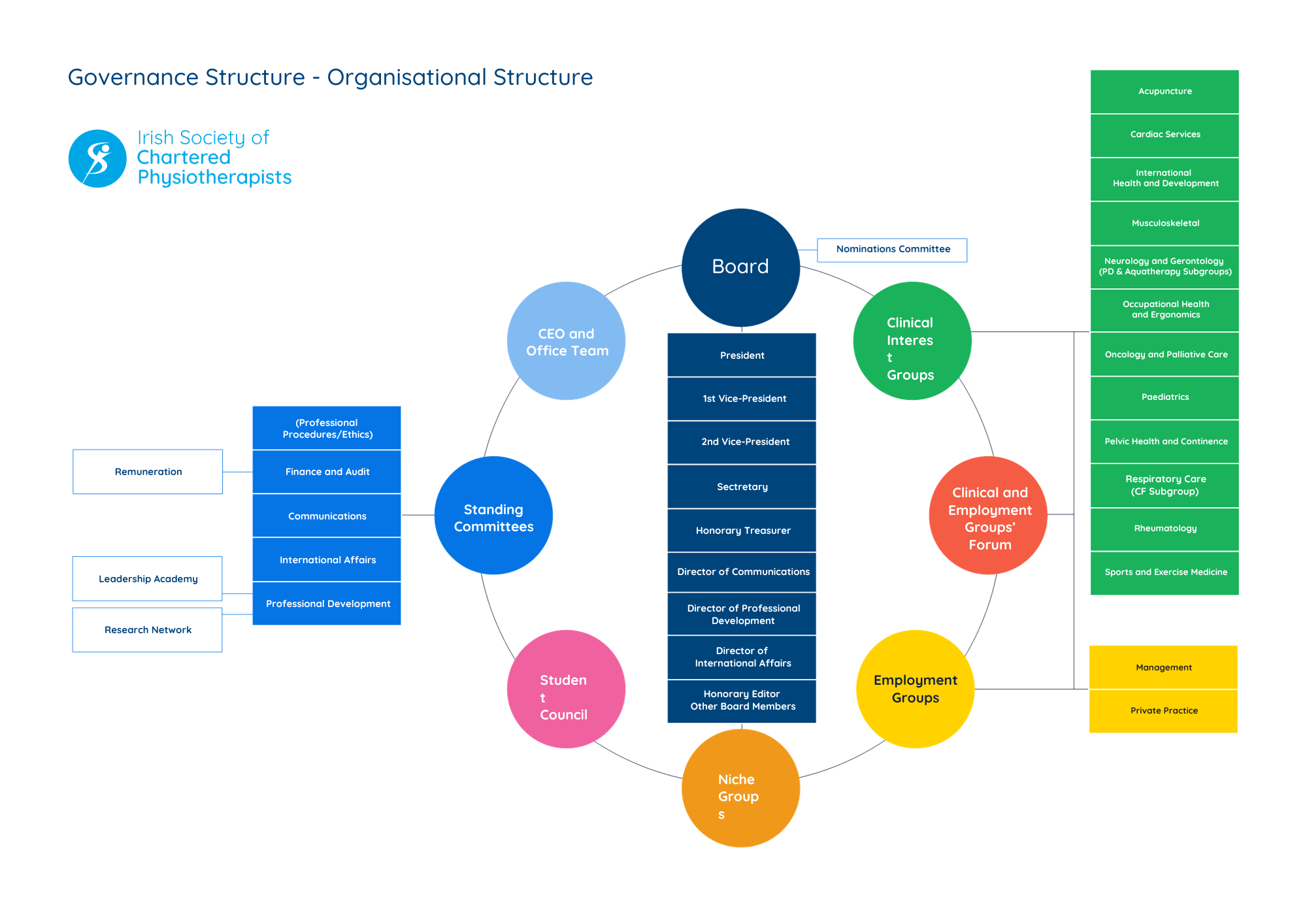Learn more about our Society structure and how we operate
Board and Standing Committees
The organisational structure and rules of procedure for the ISCP are determined by the constitution of the ISCP. The management and direction of the affairs of the society are vested in the Board, which is the ultimate policy-making body. The primary purpose of the Board is governance that is, taking overall responsibility for the organisation, while overseeing the management and operational functions of the Society.

The officers of the Society are a President, First Vice-President, Second Vice-President, Honorary Secretary, Honorary Treasurer, Director of Professional Development, Director of International Affairs and Director of Communications.
There are five Standing Committees whose titles reflect their functions. Each Standing Committee has specific roles and responsibilities and reports directly to the Board through the relevant Board Member. Standing Committees are the core functional units for the business of the Society. They advise and support the Board and deal with functions of particular importance to the profession, both internal and external.
The five Standing Committees are:
- Professional Procedures and Ethics Standing Committee
- Finance and Audit Standing Committee
- Professional Development Standing Committee
- International Affairs Standing Committee
- Communications Standing Committee
Clinical Interest Groups
The Clinical Interest Groups comprise members who have a special interest and practical expertise in a specific clinical area. The role of a Clinical Interest Group is to:
- Assist the Society in fulfilling its business functions;
- Advise the Society in the area of clinical expertise;
- Provide education and professional development in the specific clinical area;
- Inform the Board of issues arising for the profession in the clinical area;
- Promote the specific clinical area;
- Provide guidance to and assist the Board in preparing submissions and responses to both internal and external requests; and
- Assist the Board in informing and influencing internal and external stakeholders.
Employment Groups
The Employment Groups comprise members who are employed in specific employment areas. Currently these are Community Care, Management and Private Practice. The role of an Employment Group is to:
- Assist the Society in fulfilling its business function;
- Provide strategic development and advocacy for its members;
- Support the members within the employment area;
- Through the Board, inform and influence internal and external stakeholders;
- Consult, collaborate and make recommendations on employment issues;
- Provide guidance and assist the Board to prepare submissions and responses; and
- Promote, facilitate and provide education and CPD in the specific employment area.
Clinical and Employment Groups’ Forum (CEGs)
A Forum for Clinical Interest Groups and Employment Groups was established in 2013. The Forum meets 4 times a year and comprises a representative from each of the Groups. The Vice President with responsibility for Groups attends the meetings and reports to the Board. They are facilitated by the Professional Advisor.
Working Groups
There are a number of Working Groups that currently exist within the Society and they report directly to the Board. Other Working Groups are established by the Board to undertake a specific piece of work and are formally disbanded (by the Board) when the work is completed.



